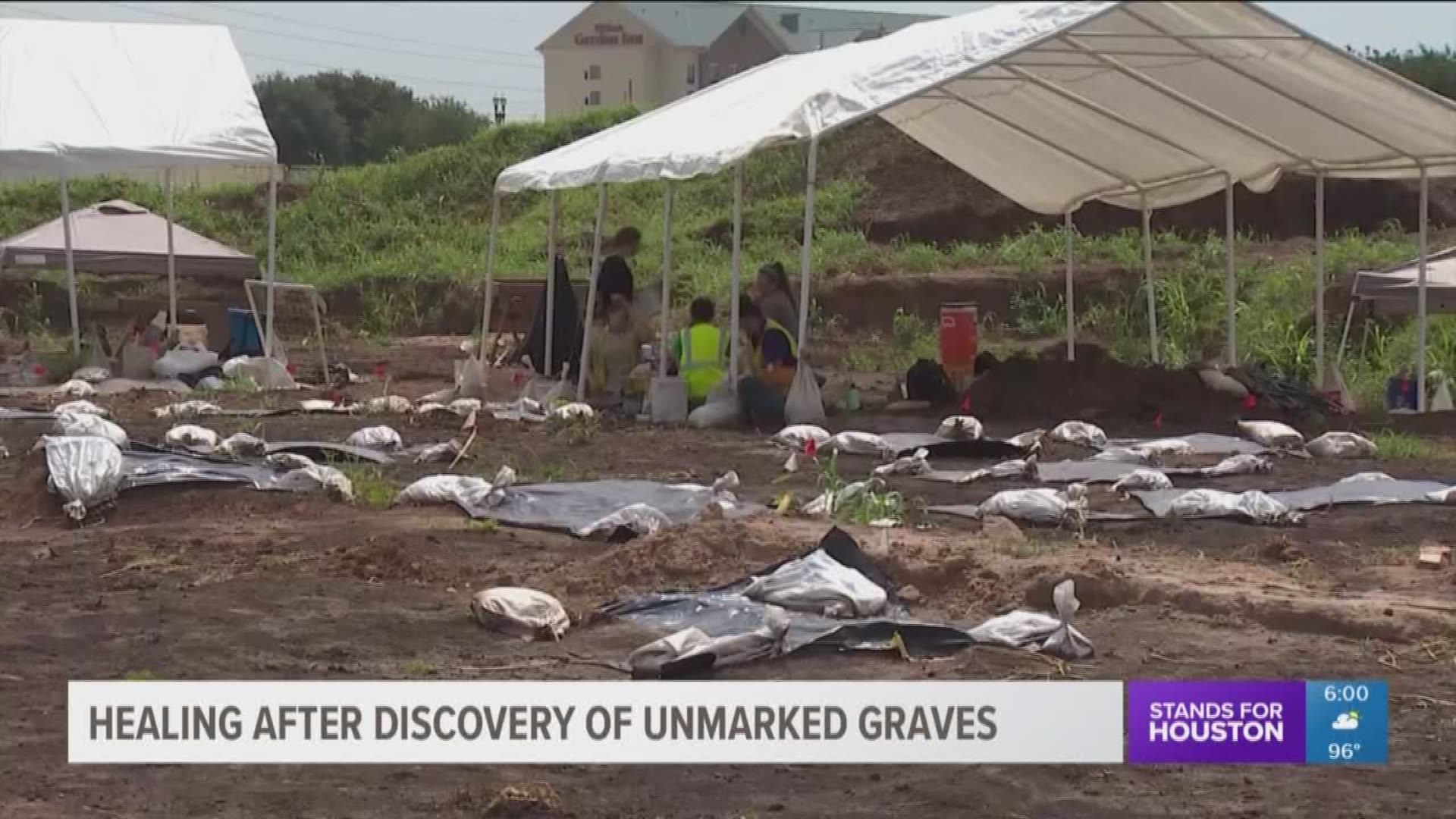SUGAR LAND, Texas – It’s something local historian Reginald Moore has been pushing for, for years – a chance to sit down with city of Sugar Land officials and talk seriously about a tribute to the former slaves and prisoners forced to work the land more than a century ago.
On Thursday, those talks happened, with many ideas emerging. It comes three months after the discovery of more than 90 unmarked graves at a construction site. The discovery gained international attention, giving people a glimpse into a “little-known” period of time.
Moore and the city of Sugar Land envision a memorial park on part of 60 acres of undeveloped land, owned by the city.
The park would be at the Old Imperial Prison Farm Cemetery, created for black prisoners more than a century ago, and located about 11/2 mile from where the remains were discovered. The park would include a museum with the goal to educate the public about this disturbing period in time.
“Hopefully, these things will come to fruition,” Moore says. Moore says he and other activists feel hopeful after the first official round of talks with the city of Sugar Land.
“Up until this point, we hadn’t been able to get to first base,” added Sam Collins of the newly formed Convict Leasing and Labor Project.
Everything changed when back in April, 95 human remains were discovered by construction crews, on the corner of Chattam Avenue and University Boulevard.
Those remains are still being exhumed.
Archaeologists believe they belong to black prisoners, among them former slaves, to work on plantations and railroads after slavery ended.
City officials are now taking steps to educate the public about the area’s past.
“We have the opportunity to do what I think is an appropriate job recognizing the history and helping to learn more about the convict leasing program,” said Sugar Land’s City Manager Allen Bogard.
The convict leasing program in Texas was outlawed in 1910. Historians say many freed slaves were imprisoned on trumped up charges, and then literally worked to death.
The prisoners weren’t paid for labor, and the state would profit by “leasing” out convicts to private business owners. Moore said it was more like slavery by another name.
While working as a corrections officer, Moore began studying the prison system’s past. He’s always warned that developers might find the unmarked graves of slaves and prisoners throughout Sugar Land and Fort Bend County.
The city now promises to use magnetometers to detect remains on land it owns. It will do excavation, if necessary.
“By partnering, the city has already started the healing process, but just acknowledging what happened,” says Collins, who also is on the Board of Advisors for the National Trust for Historic Preservation, representing Texas.
These actions are part of the reparations local activists have requested. They do not include financial pay-outs, but a memorial, museum and tributes to those who helped build the county and state.
“We all know we’re in a period where memorials from the past, especially from the Confederate past, are being taken down, more in Texas than anywhere else," says Richard Vogel, a volunteer with the Convict Leasing and Labor Project. "The question is, what are those new memorials going to look like?”
Fort Bend ISD owns the property where the remains were found. The plan is for the school district to pay for reinterring those remains at Old Imperial Farm Cemetery.
The city of Sugar Land will pay for landscaping and upkeep, and pay for any memorial and museum. The specifics of the plans discussed Thursday are set to be hashed out at a City Council meeting on Aug. 7.

